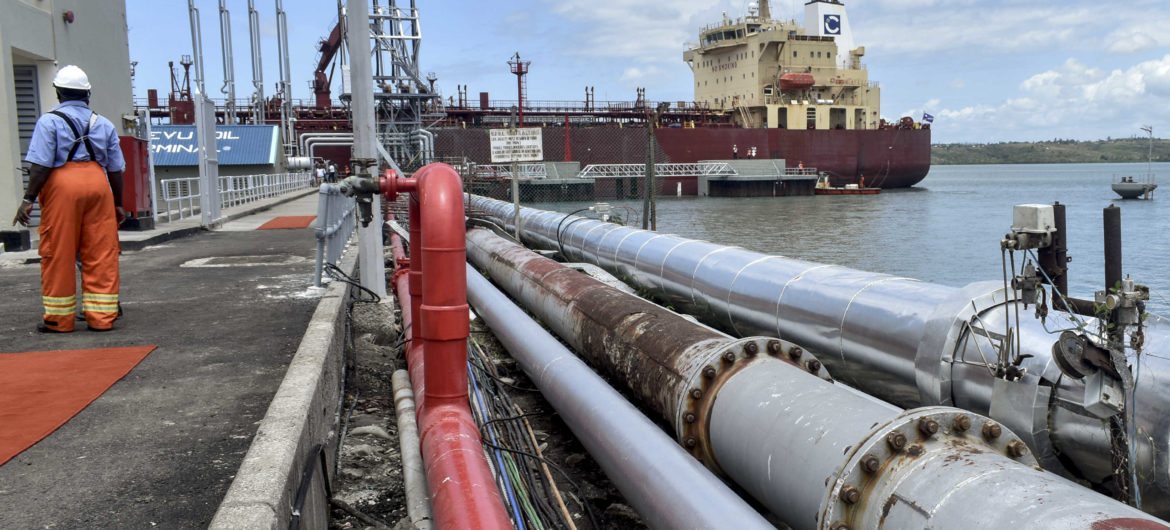ExxonMobil saw its offer value crash by approximately 15 percent in the previous week, one out of a progression of oil organizations that ends up in a freefall.
Four other oil majors – Chevron, BP, Shell and Total – likewise declined pointedly, hauled somewhere near the most noticeably awful week after week misfortune at oil costs in over four years.
Be that as it may, the issues for the oil majors run a lot further than the coronavirus, and their offer value decays have been in progress for a long while.
The majors end up confronting a mind boggling set of issues, with no get way out. Oil request development in the short run has disappeared, yet over the long haul top interest looms. Costs have been stuck at low levels, however returns for the majors were disillusioning even preceding the 2014 emergency. Huge numbers of them have wagered large on U.S. shale, even as the plan of action stays problematic. A time of negative income on shale boring raises genuine warnings about the budgetary feasibility of the whole fracking venture.
Before, nonstop development was the plan of action. Additional spending and more investigation so as to discover more saves, which converted into a bigger creation portfolio. Financial specialists have totally soured on this procedure, and organizations are progressively climbing profits and offer buybacks to shield investors from deserting them. ExxonMobil gets itself to some degree alone in staying with the old technique of forceful development.
Be that as it may, dispensing more cash to investors and swearing off development introduces another arrangement of difficulties for an industry started on perpetual development. The sensational decrease in vitality share costs likely mirrors a developing conviction that oil and gas organizations are going to battle with a low-carbon change.
The European majors are attempting to make the rotate, with BP, Shell and Total declaring differing degrees of atmosphere targets. Eni recently declared that its oil and gas creation would top in 2025.
None of the methodologies appear to be working and the entirety of the oil majors are battling. All things considered, they are currently spending substantially less than previously, yet that also is an indication of decrease, as per another report.
“In 2019, the five largest integrated oil and gas companies—ExxonMobil, Shell, Chevron, Total and BP—spent a total of $88.7 billion on capital projects, down nearly 50 percent from the $165.9 billion they spent in 2013,” a report from the Institute for Energy Economics and Financial Analysis said. “Not since 2007 have the capital expenditures, or capex, among the five companies been so low.”
The majors have cut spending so as to restrain the harm to their monetary records, however low capex is a “warning to a mature industry with declining prospects in its traditional businesses – oil and gas exploration and production, refining and petrochemicals,” the report said.
Capex is a “crucial gauge” for how organizations see their future development prospects, the experts composed. In any case, an “convergence of trends” has pressed them.
These patterns incorporate more vulnerable development possibilities, including the “elusive” conviction that petrochemicals offer the following huge development area. They have less money than they used to, because of lower oil and gas costs.
Supplanting holds is never again the favored measurement. Rather, financial specialists need income, something that the majors are additionally battling with.
In the interim, the majors all in all compensated investors with $536 billion in profits and offer buybacks over the previous decade, while just producing $329 billion in free income. They have needed to sell resources and assume obligation to compensate for the deficiency.
What’s more, the vitality segment is declining all the more comprehensively in significance, speaking to an a lot littler cut of the S&P 500 than it used to. “Simply put, a declining industry requires less capex,” the IEEFA analysts wrote.
The oil and gas industry “has reached a mature and declining phase, with a weak financial outlook,” IEEFA finished up.
Disclaimer: The views, suggestions, and opinions expressed here are the sole responsibility of the experts. No Times World USA journalist was involved in the writing and production of this article.




